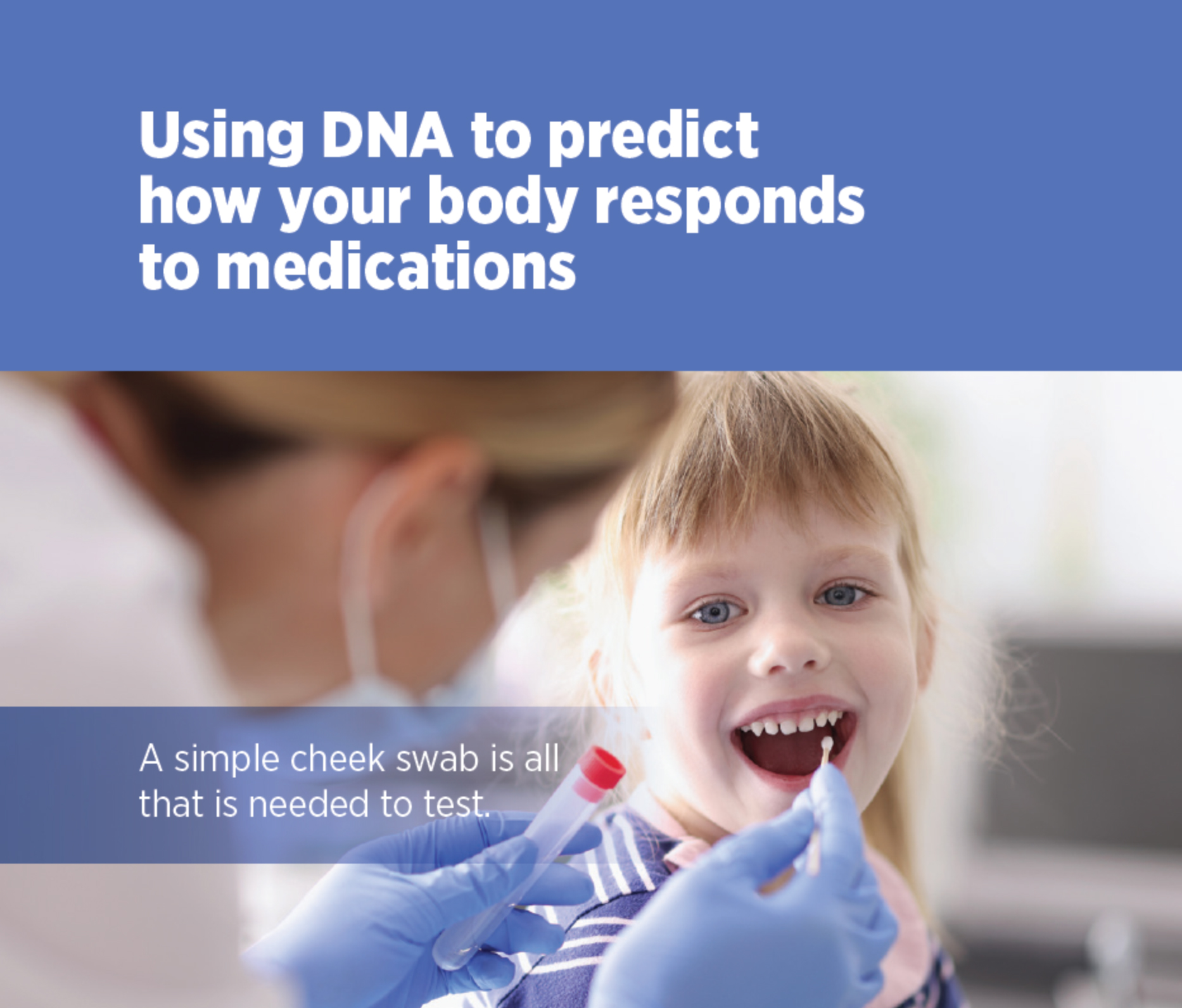
Your
DNA
can help optimize your medications
How well are your
medications working for you?
99% of people have genetic variants that impact how their bodies respond to certain medications1. For example, anti-depressants are ineffective 38%
of the time on average.
One Size Does Not Fit All
Percentage of patient population for which a particular drug in class is
ineffective, on average.

Spear, BB, Heath-Chiozzi, M, Hu , J. Clinical application of pharmacogenetics. Trends in Molecular Medicine. 2001;7(5): 201-204.

The Aura Genetics Pharmacogenomics (‘PGx’) test result can help your healthcare provider select the best match of medication and dosage specific to you.
Just as genes determine special things about you such as eye color and blood type, genes can also help predict how your body may respond to a medication differently from someone else. Collected via a simple cheek swab, our PGx test can identify specific differences in your DNA that may affect how your body responds to some medications. Depending on your genetic makeup, some medications may not provide much benefit, or worse, may create adverse drug reactions (ADR’s), the forth leading cause of death in the U.S.

How it Works
Personalized approach that enables the right drug and dosage to be prescribed based on your genetics
PGx testing helps personalize your treatment plan.
When prescribing, your doctor typically chooses the medication and dosage based on what usually works for most people with those symptoms, that condition, family history, etc. With the help of our PGx test results, your doctor can now do less trial and error prescribing and find the right drug and right dose faster. This helps improve outcomes and saves time and money.
Who is this test for?
- Those wanting a proactive approach to medication management
- Those struggling to find symptom relief
- Those who have experienced adverse drug reactions
- Those on multiple medications
- Those switching to or starting new medications
Understanding Your Test Results
Relating your genetics to response to medications is termed Drug-Gene interaction and can help your doctor adjust the dosage or recommend a better alternative medication. For example, if testing indicates that your body metabolizes an active drug too slowly, the drug might build up in your body and increase the likelihood of side effects. While the drug might still be useful for you, a lower dose may be appropriate. Should you be a fast metabolizer of an active drug and it leaves your body too quickly, it may provide little or no benefit and might require a higher dose or an entirely different drug.
Test results can also include indications of non-gene related factors. Lifestyle habits, diet, age, weight, and other medications and supplements you may be taking may affect your response to medications. The genes analyzed in this test do not change, therefore the Drug-Gene Interaction results will be as valuable in the future as they are today. As medications are changed, added, or modified, your doctor can continually interpret your test results for a drug’s relationship to your genetic makeup.

NEXT STEPS
- Ask your doctor about an Aura Genetics PGx test.
- If your doctor agrees the results could be useful for your medication management, you’ll be asked to sign a patient consent form and provide a sample via a simple, non-invasive cheek swab.
- Your sample will be sent to the lab for processing and in about a week, your doctor will receive the results and schedule a consultation with you.
